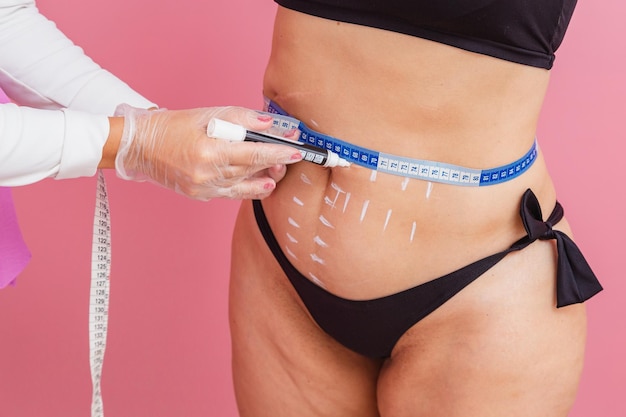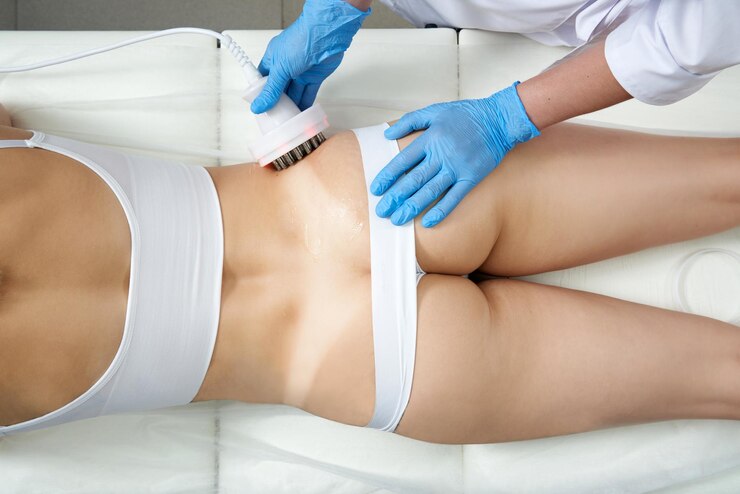Recovery Tips for Liposuction Surgery
Liposuction surgery is a popular cosmetic procedure designed to remove excess fat from targeted areas of the body, offering patients a more sculpted and contoured appearance. While liposuction can provide impressive results, proper post-surgery care is crucial to ensure a smooth recovery and optimal outcomes. If you’re considering Liposuction Abu Dhabi, understanding the recovery process and following the right tips can help you heal efficiently and enjoy your results sooner.
In this article, we’ll discuss essential recovery tips for liposuction surgery in Abu Dhabi, helping you navigate the healing process with confidence and ease.
1. Follow Your Surgeon’s Instructions
1.1 Why It’s Crucial
After liposuction, your surgeon will provide detailed instructions for post-operative care. These instructions are designed to minimize complications and ensure that your body heals properly. It's essential to follow them to the letter, as every patient’s recovery needs may vary based on the areas treated and the extent of the procedure.
1.2 Key Instructions to Follow
Some common post-operative guidelines include:
- Taking prescribed medications for pain management and to prevent infection
- Wearing compression garments to reduce swelling and promote skin tightening
- Keeping follow-up appointments for your surgeon to monitor progress
2. Wear Compression Garments
2.1 Importance of Compression Garments
One of the most important aspects of liposuction recovery is wearing compression garments as directed by your surgeon. These garments help reduce swelling, support the treated areas, and encourage the skin to conform to its new contours. Compression garments also promote the reabsorption of fluids that may accumulate after surgery, minimizing the risk of complications like seroma (fluid buildup).
2.2 How Long to Wear Compression Garments
Patients are generally advised to wear compression garments for several weeks following surgery. Your surgeon will provide specific instructions on how long you should wear them, depending on the extent of the liposuction and your individual healing process. Wearing these garments consistently, especially in the first few weeks, can significantly improve your recovery experience and the final results.
3. Manage Swelling and Bruising
3.1 Understanding Swelling and Bruising
Swelling and bruising are common after liposuction and are part of the normal healing process. Swelling may be more pronounced in the first few days post-surgery but usually subsides over time. Bruising may also occur and can take several weeks to fade. Both swelling and bruising will gradually diminish as your body heals.
3.2 Tips to Minimize Swelling and Bruising
To minimize swelling and bruising, consider the following tips:
- Rest: Give your body ample time to rest and recover in the initial days after surgery. Avoid strenuous physical activity.
- Elevate the treated areas: Elevating the treated areas, especially in the first few days, can help reduce swelling.
- Cold compresses: Applying a cold compress to the treated areas (if recommended by your surgeon) may help minimize swelling and bruising in the first 48 hours.
4. Avoid Strenuous Activities
4.1 When to Resume Physical Activity
While you may feel the urge to return to your normal activities soon after surgery, it’s important to avoid strenuous exercises and physical activity during the recovery period. In the first few weeks, your body needs time to heal, and engaging in heavy physical exertion can lead to complications such as increased swelling, bruising, or delayed healing.
4.2 Gradual Return to Exercise
Your surgeon will provide guidelines on when it is safe to resume more intense activities. Typically, light walking can be resumed within the first few days, but it’s best to wait at least 4-6 weeks before engaging in activities like running, weightlifting, or vigorous exercise.
5. Take Care of Your Skin
5.1 Proper Skin Care
After liposuction, your skin may feel tender, and it’s essential to treat it gently during the healing process. While your surgeon will guide you on how to care for your skin after surgery, here are a few general tips:
- Keep the incision areas clean and dry: Gently wash the incision sites with mild soap and water as recommended by your surgeon.
- Avoid direct sun exposure: Sun exposure can cause scarring and pigmentation changes. Protect your skin with sunscreen or avoid the sun altogether while healing.
- Hydrate: Drinking plenty of water and using moisturizers can keep your skin hydrated and support the healing process.
5.2 Scarring and Healing
While liposuction typically leaves only small scars, it's essential to care for your incisions to minimize visible scarring. Applying scar creams, as recommended by your surgeon, and following aftercare instructions can help improve the appearance of any scars.
6. Stay Hydrated and Nourished
6.1 Importance of Hydration
Proper hydration is vital during the recovery process. Drinking enough water helps with fluid balance, aids in the removal of toxins, and supports your body’s ability to heal efficiently.
6.2 Balanced Diet for Healing
A healthy diet is essential for optimal recovery. Focus on eating nutrient-dense foods that promote healing, such as:
- Protein-rich foods to support tissue repair
- Fruits and vegetables that are rich in vitamins and antioxidants
- Healthy fats to reduce inflammation
Avoid processed foods, excessive salt, and sugary items, as they can contribute to bloating and slower recovery.
7. Get Plenty of Rest
7.1 Why Rest Is Crucial
Adequate rest is essential for healing. Your body needs time to recover and repair itself after surgery. In the first few days, you should focus on resting and avoiding physical exertion. Ensure you get enough sleep, as this is when the body works to heal and regenerate.
7.2 Sleep Position
For the first few weeks after surgery, your surgeon may advise you to sleep in a specific position, especially if you had liposuction on your abdomen or torso. Follow these instructions carefully to avoid putting pressure on the treated areas and to prevent unnecessary discomfort.
8. Attend Follow-Up Appointments
8.1 Why Follow-Up Appointments Are Important
After your liposuction surgery, it’s essential to attend all scheduled follow-up appointments with your surgeon. These appointments allow the surgeon to monitor your progress, address any concerns, and ensure that your healing is on track. During these visits, your surgeon may perform check-ups, remove sutures (if necessary), and assess the treated areas to ensure that your results are optimal.
9. Patience Is Key
9.1 Understanding the Healing Timeline
It’s important to understand that the recovery process after liposuction can take time. While many patients notice improvements within the first few weeks, it can take up to 6 months for the full results to become visible. Patience is key as your body adjusts to its new contours and continues to heal. Trust the process, and give yourself time to see the final outcome.
9.2 Don’t Rush the Results
While you may be excited to see your new body, avoid rushing the process. Let your body heal at its own pace, and be patient with the swelling, bruising, and discomfort that can occur in the weeks following surgery. The final results will be worth the wait.
10. FAQs About Liposuction Recovery in Abu Dhabi
1. How long does it take to recover from liposuction surgery?
Most patients experience an initial recovery period of 1-2 weeks. However, full recovery and the final results can take 3-6 months.
2. When can I return to work after liposuction surgery?
You can typically return to work within 1-2 weeks, depending on your job and how you feel. Avoid strenuous work in the initial weeks.
3. Are there any restrictions on diet after liposuction?
There are no strict diet restrictions, but it's important to eat a balanced diet and avoid excess salt and sugar to help with swelling and bruising.
4. How soon can I exercise after liposuction surgery?
It’s usually safe to resume light walking after a few days. More strenuous exercise can typically be resumed after 4-6 weeks, but it’s best to follow your surgeon's advice.
5. How do I care for my incisions after liposuction?
Keep the incision sites clean and dry, and follow your surgeon’s aftercare instructions. Avoid sun exposure and use sunscreen on healing scars.
Conclusion
Recovery after liposuction surgery in Abu Dhabi is a crucial part of the process to ensure that you achieve the best results. By following your surgeon’s instructions, wearing compression garments, managing swelling, and maintaining a healthy lifestyle, you can optimize your healing and enjoy the body transformation you’ve always wanted. With proper care, patience, and attention to your recovery, you can look forward to a smoother, more contoured body and a significant boost in your confidence.




Comments
Post a Comment